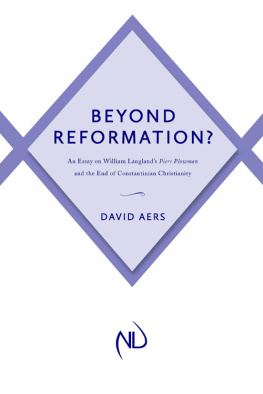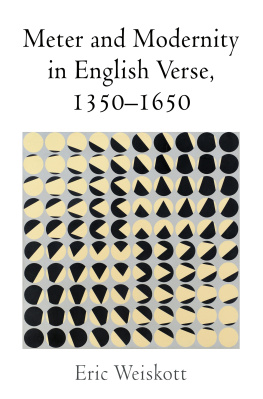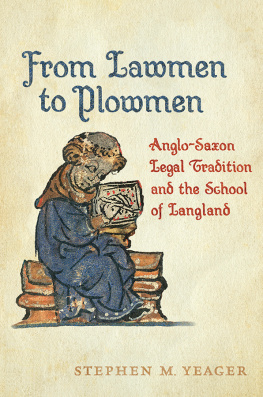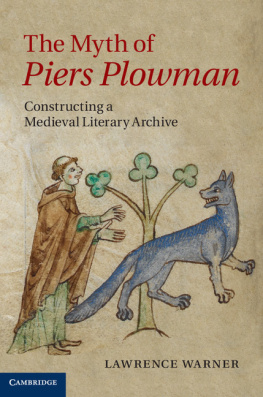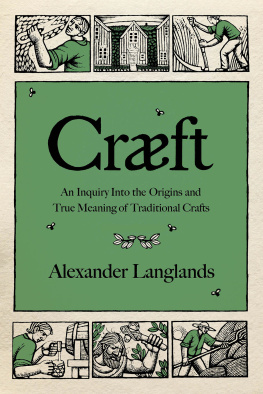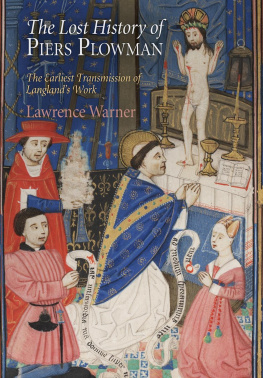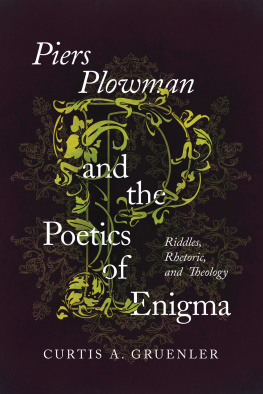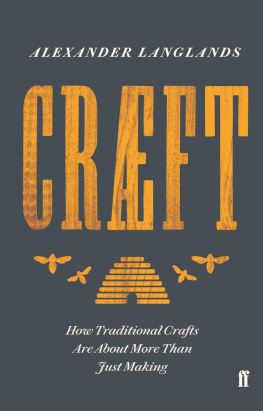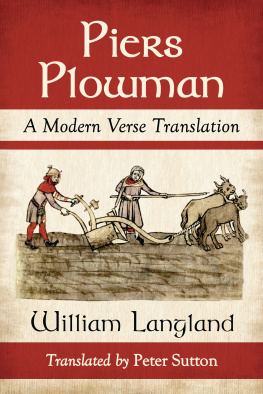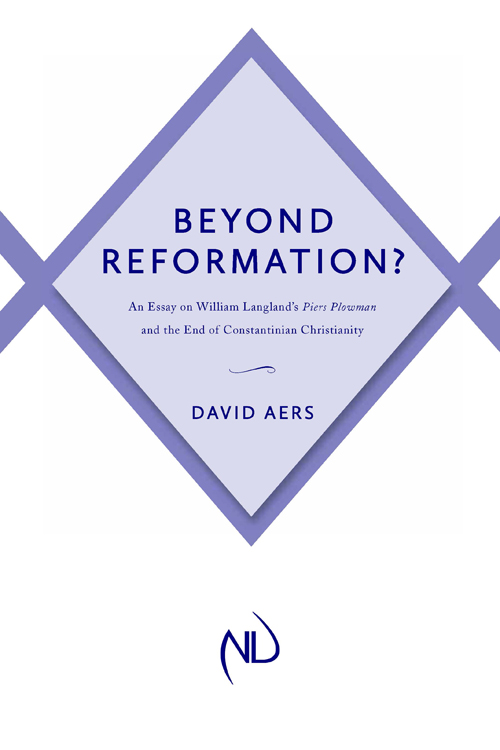This e-Book was converted from the original source file by a third-party vendor. Readers who notice any formatting, textual, or readability issues are encouraged to contact the publisher at
Mirabile ergo mysterium Christi sedentis ad dexteram Dei: occultum est ut crederetur, subtractum est ut speraretur.
(This is a wonderful thing about the mystery of Christs enthronement at Gods right hand: his presence is hidden that he may be believed in and withdrawn that he may be hoped for.)
St. Augustine, Enarrationes in Psalmos, 109.8
et certe videmus nunc per speculum in aenigmate, nondum facie ad faciem. et ideo, quamdiu peregrinor abs te, mihi sum praesentior quam tibi at tamen te novi nullo modo posse violari; ego vero quibus temptationibus resistere valem quibusve non valeam, nescio.
(Without question, we see now through a mirror in an enigma, not yet face to face [1 Cor. 13:12]. For this cause, as long as I am a traveller absent from you [2 Cor. 5:6], I am more present to myself than to you. Yet I know that you cannot be in any way subjected to violence, whereas I do not know which temptations I can resist and which I cannot.)
St. Augustine, Confessions, X.5.7
I would think that the whole Christian faith, and all Christs promises about the Catholic faith lasting to the end of the age, and the whole Church of God, could be preserved in a few, indeed in one.
William of Ockham, A Letter to the Friars Minor
Because this is a somewhat idiosyncratic little book, the preface offers a brief account of some of the contexts that fostered its making and within which it ruminates. While this will not justify its existence, it suggests the kind of questions that inform the inquiry. I hope that even a very brief articulation of such questions may encourage at least some to read on who are not based in an English department and do not share (yet) my own love of Langlands work. To help readers new to the poem I have included, at the end of the preface, Derek Pearsalls excellent summary of the final version of Piers Plowman. This comes from his edition, Piers Plowman: A New Annotated Edition of the C-Text. Throughout Beyond Reformation? I have followed quotations of Langlands poetry with translations by George Economou. I am grateful to Derek Pearsall, George Economou, and their publishers for permission to quote from these works. I hope the outline and the translations welcome new readers of the poem and nonmedievalists since this essay does raise in the margins, however tentatively, questions about cultural change and continuity from the Middle Ages to the English reformations of the sixteenth and seventeenth centuries.
But the most obvious and determinate focus of this book is the greatest English poem of the Middle Ages, Piers Plowman, which according to its brilliant nineteenth-century editor, Walter Skeat, was a poem that its author kept writing and revising throughout his life. The three versions that have reached us catch this process at different stages. The outcome of modern editing has confirmed both Skeats picture of the process of writing and the view that it was made by one author, William Langland. But such conversations, however important to my own reflections, provide a mostly implicit context for what is a close reading of a late medieval text and its analysis of its own culture in light of the journey of Christ into the far country and his homecoming.
For me, to attempt a close reading of this utterly gripping work is crucial even if this creates obstacles for even composing a grand narrative. Close reading: I have tried to remember Thomas Aquinass admonition that ex modo loquendi datur nobis doctrina, that the teaching we receive is inextricably bound up with the mode in which it is composed. He makes this remark in a commentary on the Pater Noster, but we find similar urgings in the Summa Theologiae. We must, he says, attend not only to what is signified but also to the modus significandi. Failure to do this can lead to serious theological error, something St. Thomas finds illustrated in Joachim of Fiores teaching on the Trinity.
I am also trying to understand Langlands own inventive, sometimes thoroughly idiosyncratic engagements with the Christian traditions he inherited, ones that included but were certainly not circumscribed by Eamon Duffys traditional religion in England. As Alasdair MacIntyre observes in After Virtue, All reasoning takes place within the context of some traditional mode of thought, transcending through criticism and invention the limitations of what had hitherto been reasoned in that tradition: this is as true of modern physics as of medieval logic. It is true, moreover, that when a tradition is in good order it is always partially constituted by an argument about the goods the pursuit of which gives to that tradition its particular point and purpose. If it is flourishing, a tradition will embody continuities of conflict. Indeed, a living tradition is a historically extended, socially embodied argument precisely in part about the goods which constitute that tradition. Whether he considered this part of a tradition in good order and whether he himself thought some contemporary disagreements irresolvable are questions informing the inquiry of this book. Whatever the answer to these questions, such are the terms in which I approach the relations between late medieval Christianity and the Reformation, an approach that seems taught by Piers Plowman.
Perhaps two phrases in this books title need some comment: Beyond Reformation and Constantinian Christianity. First, a few points about reform in the Middle Ages. Whether Langland shared the dispositions of Simpson or Duffy toward such Christians passing beyond reformation acceptable to traditional authorities remains a question that this book addresses. For one of its central questions is whether Langland himself goes beyond reformation in his ecclesiology and political theory. The answer that emerges is that he did indeed do so but in a somewhat enigmatic ecclesiology for fools.
As to the phrase Constantinian Christianity in this books title, Langland explicitly introduces reflections on this subject. He does so in the discourse of one of the poems teachers, Liberum Arbitrium, Cristes creature and well known in Cristes court (XVI.16768). In Passus XVII he offers a grand narrative of the church as part of his criticisms of its modern practices. In this story the donation of Constantine to the church of the fourth century was a formative disaster:
Whan Constantyn of his cortesye holy kirke dowede
With londes and ledes, lordschipes and rentes,
An angel men herde an hye at Rome crye,
Dos ecclesie this day hath ydronke venym
And tho that haen Petres power aren apoysened alle.
(XVII.22024)
[When Constantine out of his courtesy endowed Holy Church

